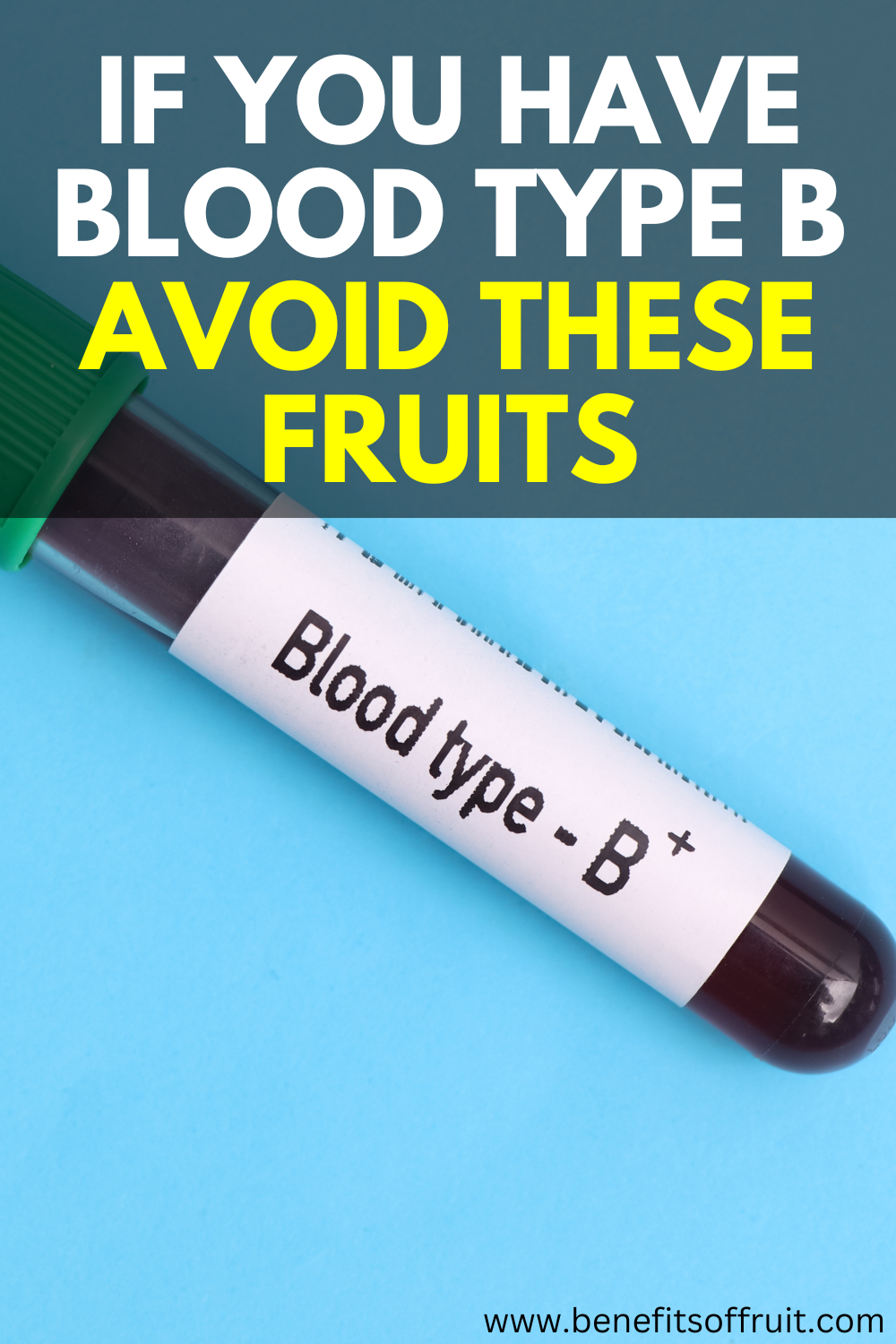The Blood Type Diet, conceptualized by Dr. Peter D’Adamo in his book “Eat Right 4 Your Type,” has gained significant attention for its unique approach to nutrition. It posits that individuals with different blood types process foods differently, which can impact their health, energy levels, and even weight management. For Blood Type B individuals, the diet suggests specific dietary guidelines to optimize health based on purported genetic characteristics. Fruits, being an essential part of any diet, play a significant role in this regimen. This article explores the fruits that people with Blood Type B should avoid according to this diet.
Understanding the Blood Type B Diet
Dr. D’Adamo’s Blood Type Diet is based on the premise that the evolution of blood types influenced how individuals metabolize certain foods. Blood Type B, believed to have originated from nomadic tribes, is suggested to have a robust digestive system and a tolerant immune system. However, it is thought to have unique sensitivities that require careful dietary management.
The Blood Type B diet recommends a balanced and varied diet, including lean meats, dairy, grains, and a variety of fruits and vegetables. However, certain fruits may pose challenges to the digestion or immune system of Blood Type B individuals. The primary concerns revolve around lectins, natural proteins in foods that may agglutinate blood cells and disrupt digestion. Let’s delve into the fruits that should be avoided.
Fruits to Avoid for Blood Type B
Coconut and Coconut Products
Coconut and its byproducts, such as coconut milk and coconut oil, are rich in saturated fats that can be difficult for some individuals to digest. For Blood Type B individuals, the high-fat content can be particularly problematic, potentially causing digestive issues. Additionally, coconuts have components that may trigger immune responses, leading to allergic reactions in susceptible individuals.
Despite its popularity due to its numerous health benefits, including being rich in medium-chain triglycerides (MCTs) and antioxidants, coconut is not ideal for Blood Type B individuals. The high saturated fat content can interfere with metabolic processes unique to this blood type, potentially leading to weight gain and metabolic disturbances.
Pomegranate
Pomegranate, a fruit widely recognized for its high antioxidant content, has potential blood-thinning effects that may not be suitable for Blood Type B individuals. The fruit’s natural compounds can interact with other dietary components, leading to adverse effects on blood coagulation.
While the fruit is rich in vitamins and has anti-inflammatory properties, its specific interactions with Blood Type B’s digestive system make it a less desirable choice. Those with this blood type should be cautious about consuming pomegranates, especially if they are prone to digestive disturbances or are on medications that thin the blood.
Tomato
Tomatoes are a staple in many diets due to their versatility and nutritional benefits. However, for Blood Type B individuals, tomatoes can be problematic due to their lectin content. Lectins are proteins that, when consumed, can bind to the lining of the intestines and interfere with nutrient absorption.
Tomato lectins have been suggested to increase inflammation in individuals with Blood Type B, potentially leading to digestive discomfort and other health issues. Despite their benefits in providing vitamins A and C and antioxidants like lycopene, tomatoes may not be suitable for Blood Type B individuals due to their potential inflammatory effects.
Avocado
Avocado, another fruit known for its high healthy fat content, can interfere with the metabolism of Blood Type B individuals. The fruit’s high-fat content, although predominantly monounsaturated fats, may be challenging for this group to digest efficiently.
Moreover, the type of fat in avocados can alter the metabolism of carbohydrates and other nutrients in Blood Type B individuals. This can lead to digestive issues, weight gain, and other metabolic concerns, making it a fruit that should be avoided.
Starfruit
Starfruit, or carambola, is a tropical fruit that contains neurotoxins that can affect the nervous system. Although it is safe for most individuals in moderation, those with Blood Type B may have heightened sensitivity to these neurotoxins.
Consuming starfruit can lead to adverse reactions, especially in individuals with preexisting kidney issues or those with heightened sensitivity to its toxins. While it provides a unique flavor and is rich in vitamin C, the risks may outweigh the benefits for Blood Type B individuals.
Rationale Behind the Avoidance
The rationale for avoiding these fruits hinges on the presence of lectins and other specific compounds that affect Blood Type B individuals. Lectins, for instance, can cause red blood cells to clump together, leading to potential health issues. This phenomenon is believed to be more pronounced in people with Blood Type B due to unique blood chemistry.
Lectins and Digestion
Lectins found in fruits like tomatoes are believed to interfere with digestion by binding to the lining of the intestines, preventing the absorption of nutrients. This can cause digestive discomfort, nutrient deficiencies, and may even trigger immune responses.
Metabolic Effects of Fat
High-fat fruits like coconut and avocado can impact metabolism due to their saturated and monounsaturated fat content. For Blood Type B individuals, these fats may be harder to metabolize, leading to potential weight gain and metabolic disturbances.
Allergic Reactions and Neurotoxins
Fruits like coconut and starfruit contain compounds that can trigger allergic reactions or neurotoxic effects in susceptible individuals. Blood Type B individuals may have a heightened sensitivity to these components, making these fruits particularly problematic.
Conclusion
Adhering to the Blood Type B diet involves understanding the unique ways this blood type interacts with various foods. While fruits are essential for a healthy diet, certain varieties may pose challenges for individuals with Blood Type B due to their lectin content, high-fat composition, or neurotoxic effects.
Ultimately, following the Blood Type Diet guidelines can help individuals make informed dietary choices. However, it’s essential to remember that individual responses to specific foods can vary. Before making significant changes to your diet, especially based on blood type, consult with a healthcare professional to ensure the choices align with your health needs.
